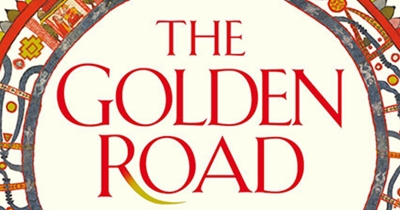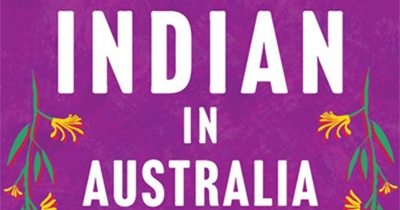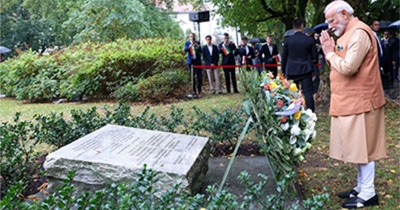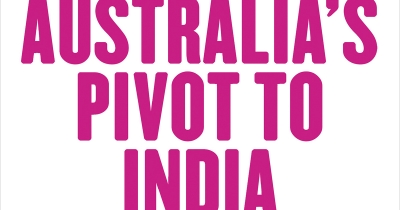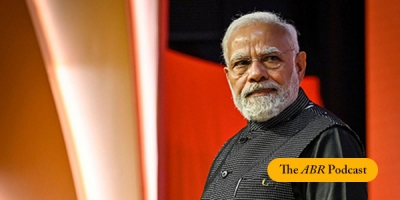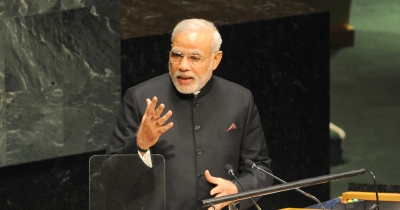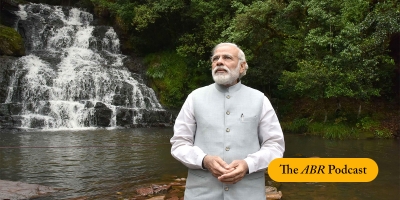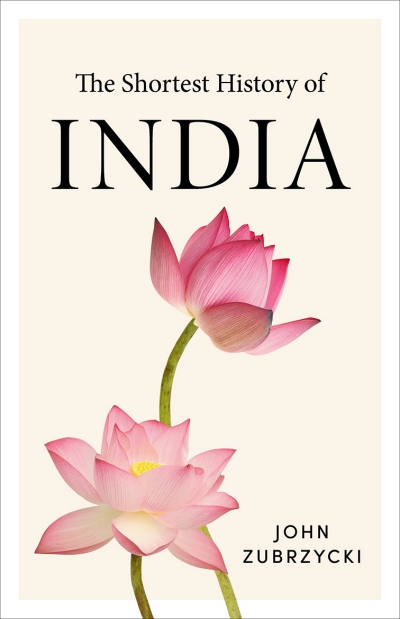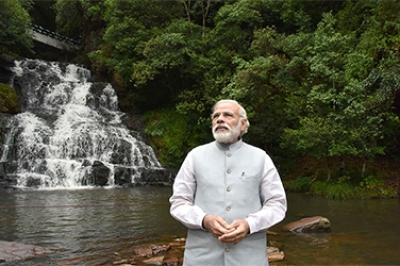Accessibility Tools
- Content scaling 100%
- Font size 100%
- Line height 100%
- Letter spacing 100%
India
The ABR Podcast
Released every Thursday, the ABR podcast features our finest reviews, poetry, fiction, interviews, and commentary.
Subscribe via iTunes, Stitcher, Google, or Spotify, or search for ‘The ABR Podcast’ on your favourite podcast app.
The red thread: Xi Jinping’s ideology of power
by Neil Thomas
This week on The ABR Podcast, Neil Thomas reviews On Xi Jinping: How Xi’s Marxist Nationalism is shaping China and the world by Kevin Rudd. Thomas explains that even China watchers find it hard to be clear on the thoughts and plans of the leader of the Chinese Communist Party. They disagree, he tells us, on basic, critical questions, such as for how long Xi will rule. ‘Enter Kevin Rudd’, Thomas writes. ‘In his latest book, former prime minister Kevin Rudd adds a worthy new chapter to his life of public service, digesting thousands of pages of “Xi Jinping Thought” so that you do not have to’. Neil Thomas is a Fellow on Chinese Politics at Asia Society Policy Institute’s Center for China Analysis in Washington DC. Here is Neil Thomas with 'The red thread: Xi Jinping's ideology of power' by Neil Thomas, published in the December issue of ABR.
Recent episodes:
The Golden Road: How ancient India transformed the world by William Dalrymple
The monsoon has now settled the dust stirred up during an eventful and blisteringly hot early summer in India. From April to June, in seven stages of voting and in temperatures that in some parts reached the high forties Celsius, almost 650 million people cast their votes in the largest election ever organised. The polls and the pundits predicted another big victory for Narendra Modi and the Bharatiya Janata Party (BJP). Yet when the verdict came, it surprised most observers. The BJP, supported by its coalition partners, was returned to office with far fewer seats than expected, and with Modi’s political authority much diminished.
... (read more)This year marks seventy-five years of Indian independence from Britain. The anniversary coincides with India’s Presidency of the G20 summit, which will take place in New Delhi this September. This week on the ABR Podcast, we hear from John Zubrzycki, who argues that Indian Prime Minister Narendra Modi is using the G20 platform to articulate a new foreign policy stance. John Zubrzycki has worked in India as a diplomat and foreign correspondent and is the author of The Shortest History of India. Listen to John Zubrzycki with ‘Politics by other means’.
... (read more)It is 1856 in a village near Lucknow, the capital of the northern Indian kingdom of Awadh. Two nawabs, Mir and Mirza, are engrossed in a game of chess, oblivious to the calamity unfolding around them. Satyajit Ray’s 1977 screen adaptation of Munshi Premchand’s short story ‘The Chess Players’ captures the decadence and idleness of Awadh, whose indulgent nobility preferred reciting Urdu poetry, listening to ghazals, and enjoying the sensuous pleasures of the zenana to paying attention to the well-being of their subjects. As Mir and Mirza continue the chess game, their state is annexed by the British on the pretext of maladministration – without a shot being fired.
... (read more)Quite a few years ago, when the future was far more important than the days gone by and the past hadn’t acquired that elusively seductive voice to beckon me with the urgency that it does now, I tended to be rather flippant about the notions of ‘home’ and ‘homeland’. ‘Home’ simply meant where I was at any given time. To an extent such a shallow definition can be attributed to my early experiences of travel and the consequences of the constantly changing landscape which confronted a young backpacker who didn’t feel the necessity of a cultural anchor. I simply moved from one country to another, with the restless compulsion of the Wandering Jew, to satiate a curiosity sparked off by a trip to the exotic wilderness of the Khyber Pass when I was a child.
... (read more)A year before he ascended to the prime ministership of India in 1947, Jawaharlal Nehru proclaimed that his nation was ‘a cultural unity amidst diversity, a bundle of contradictions held together by strong but invisible threads’. Yet, in the seventy-five years since India’s independence, secularist tolerance of religious and cultural difference has been eroded by a rising tide of Hindu majoritarianism. In this week’s episode of The ABR Podcast, John Zubrzycki reads his commentary on India’s transformation under Narendra Modi’s leadership ...
... (read more)On 15 August 2022, it will be seventy-five years since Jawaharlal Nehru declared that India’s ‘tryst with destiny’ had finally been ‘redeemed’. The rapturous crowds that gathered outside the Constituent Assembly in New Delhi on that sultry summer night cheered as loudspeakers relayed the words: ‘At the stroke of the midnight hour, when the world sleeps, India will awake to life and freedom.’
... (read more)

